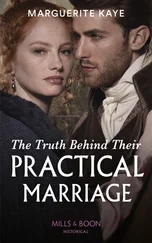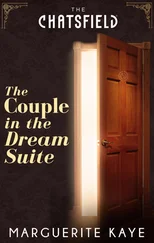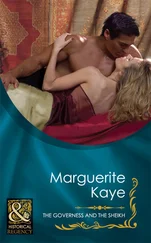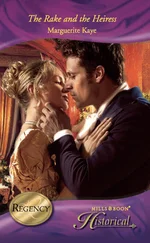Marguerite Duras - The Lover
Здесь есть возможность читать онлайн «Marguerite Duras - The Lover» — ознакомительный отрывок электронной книги совершенно бесплатно, а после прочтения отрывка купить полную версию. В некоторых случаях можно слушать аудио, скачать через торрент в формате fb2 и присутствует краткое содержание. Жанр: unrecognised, на английском языке. Описание произведения, (предисловие) а так же отзывы посетителей доступны на портале библиотеки ЛибКат.
- Название:The Lover
- Автор:
- Жанр:
- Год:неизвестен
- ISBN:нет данных
- Рейтинг книги:4 / 5. Голосов: 1
-
Избранное:Добавить в избранное
- Отзывы:
-
Ваша оценка:
- 80
- 1
- 2
- 3
- 4
- 5
The Lover: краткое содержание, описание и аннотация
Предлагаем к чтению аннотацию, описание, краткое содержание или предисловие (зависит от того, что написал сам автор книги «The Lover»). Если вы не нашли необходимую информацию о книге — напишите в комментариях, мы постараемся отыскать её.
The Lover — читать онлайн ознакомительный отрывок
Ниже представлен текст книги, разбитый по страницам. Система сохранения места последней прочитанной страницы, позволяет с удобством читать онлайн бесплатно книгу «The Lover», без необходимости каждый раз заново искать на чём Вы остановились. Поставьте закладку, и сможете в любой момент перейти на страницу, на которой закончили чтение.
Интервал:
Закладка:
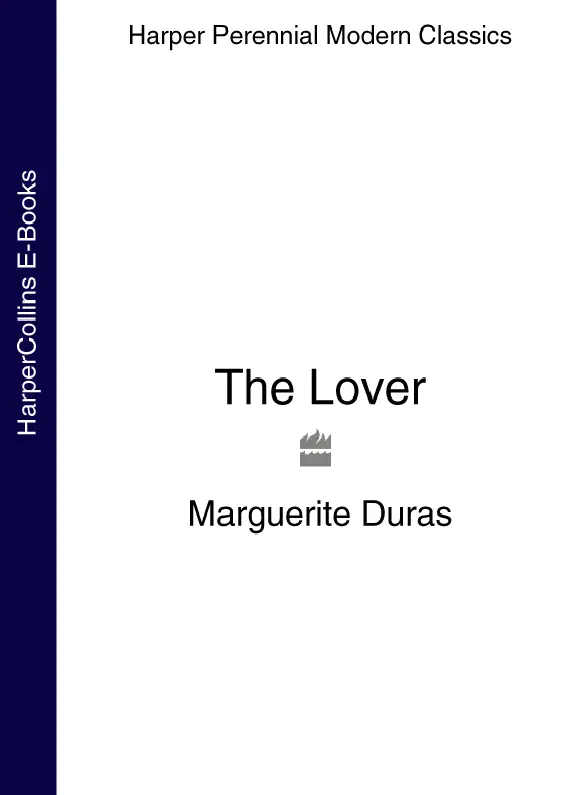
MARGUERITE DURAS
The Lover
Translated by Barbara Bray

Dedication Contents Cover Title Page Dedication The Lover P.S. Ideas, Insights & Features … About the Author Living without Restraint: from Saigon to St Germain Life at a Glance About the Book The Plain of the Birds Read On Have You Read? If You Loved This, You Might Like … Find Out More About the Author Copyright About the Publisher
For Bruno Nuytten
Contents
Cover
Title Page MARGUERITE DURAS The Lover Translated by Barbara Bray
Dedication Dedication Contents Cover Title Page Dedication The Lover P.S. Ideas, Insights & Features … About the Author Living without Restraint: from Saigon to St Germain Life at a Glance About the Book The Plain of the Birds Read On Have You Read? If You Loved This, You Might Like … Find Out More About the Author Copyright About the Publisher For Bruno Nuytten
The Lover
P.S. Ideas, Insights & Features …
About the Author
Living without Restraint: from Saigon to St Germain
Life at a Glance
About the Book
The Plain of the Birds
Read On
Have You Read?
If You Loved This, You Might Like …
Find Out More
About the Author
Copyright
About the Publisher
The Lover
ONE DAY, I was already old, in the entrance of a public place a man came up to me. He introduced himself and said: ‘I’ve known you for years. Everyone says you were beautiful when you were young, but I want to tell you I think you’re more beautiful now than then. Rather than your face as a young woman, I prefer your face as it is now. Ravaged.’
I often think of the image only I can see now, and of which I’ve never spoken. It’s always there, in the same silence, amazing. It’s the only image of my-self I like, the only one in which I recognize my-self, in which I delight.
Very early in my life it was too late. It was already too late when I was eighteen. Between eighteen and twenty-five my face took off in a new direction. I grew old at eighteen. I don’t know if it’s the same for everyone. I’ve never asked. But I believe I’ve heard of the way time can suddenly accelerate on people when they’re going through even the most youthful and highly esteemed stages of life. My ageing was very sudden. I saw it spread over my features one by one, changing the relationship between them, making the eyes larger, the expression sadder, the mouth more final, leaving great creases in the forehead. But instead of being dismayed I watched this process with the same sort of interest I might have taken in the reading of a book. And I knew I was right, that one day it would slow down and take its normal course. The people who knew me at seventeen, when I went to France, were surprised when they saw me again two years later, at nineteen. And I’ve kept it ever since, the new face I had then. It has been my face. It’s got older still, of course, but less, comparatively, than it would otherwise have done. It’s scored with deep, dry wrinkles, the skin is cracked. But my face hasn’t collapsed, as some with fine features have done. It’s kept the same contours, but its substance has been laid waste. I have a face laid waste.
So, I’m fifteen and a half.
It’s on a ferry crossing the Mekong river.
The image lasts all the way across.
I’m fifteen and a half, there are no seasons in that part of the world, we have just the one season, hot, monotonous, we’re in the long hot girdle of the earth, with no spring, no renewal.
I’m at a state boarding school in Saigon. I eat and sleep there, but I go to classes at the French high school. My mother’s a teacher and wants her girl to have a secondary education. ‘You have to go to high school.’ What was enough for her is not enough for her daughter. High school and then a good degree in mathematics. That was what had been dinned into me ever since I started school. It never crossed my mind I might escape the mathematics degree, I was glad to give her that hope. Every day I saw her planning her own and her children’s future. There came a time when she couldn’t plan anything very grand for her sons any more, so she planned other futures, makeshift ones, but they too served their purpose, they blocked in the time that lay ahead. I remember my younger brother’s courses in book-keeping. From the Universal Correspondence School – every year, every level. You have to catch up, my mother used to say. It would last for three days, never four. Never. We’d drop the Universal School whenever my mother was posted to another place. And begin again in the next. My mother kept it up for ten years. It wasn’t any good. My younger brother became an accountant’s clerk in Saigon. There was no technical school in the colonies; we owed my elder brother’s departure for France to that. He stayed in France for several years to study at the technical school. But he didn’t keep it up. My mother must have known. But she had no choice, he had to be got away from the other two children. For several years he was no longer part of the family. It was while he was away that my mother bought the land, the concession. A terrible business, but for us, the children who were left, not so terrible as the presence of the killer would have been, the child-killer of the night, of the night of the hunter.
I’ve often been told it was because of spending all one’s childhood in too strong a sun. But I’ve never believed it. I’ve also been told it was because being poor made us brood. But no, that wasn’t it. Children like little old men because of chronic hunger, yes. But us, no, we weren’t hungry. We were white children, we were ashamed, we sold our furniture but we weren’t hungry, we had a houseboy and we ate. Sometimes, admittedly, we ate garbage, storks, baby crocodiles, but the garbage was cooked and served by a houseboy, and sometimes we refused it, too, we indulged in the luxury of declining to eat. No, something occurred when I was eighteen to make this face happen. It must have been at night. I was afraid of myself, afraid of God. In the daylight I was less afraid, and death seemed less important. But it haunted me all the time. I wanted to kill – my older brother, I wanted to kill him, to get the better of him for once, just once, and see him die. I wanted to do it to remove from my mother’s sight the object of her love, that son of hers, to punish her for loving him so much, so badly, and above all – as I told myself, too – to save my younger brother, my younger brother, my child, save him from the living life of that elder brother superimposed on his own, from that black veil over the light, from the law which was decreed and represented by the elder brother, a human being, and yet which was an animal law, filling every moment of every day of the younger brother’s life with fear, a fear that one day reached his heart and killed him.
I’ve written a good deal about the members of my family, but then they were still alive, my mother and my brothers. And I skirted around them, skirted around all these things without really tackling them.
The story of my life doesn’t exist. Does not exist. There’s never any centre to it. No path, no line. There are great spaces where you pretend there used to be someone, but it’s not true, there was no one. The story of one small part of my youth I’ve already written, more or less – I mean, enough to give a glimpse of it. Of this part, I mean, the part about the crossing of the river. What I’m doing now is both different and the same. Before, I spoke of clear periods, those on which the light fell. Now I’m talking about the hidden stretches of that same youth, of certain facts, feelings, events that I buried. I started to write in surroundings that drove me to reticence. Writing, for those people, was still something moral. Nowadays it often seems writing is nothing at all. Sometimes I realize that if writing isn’t, all things, all contraries confounded, a quest for vanity and void, it’s nothing. That if it’s not, each time, all things confounded into one through some inexpressible essence, then writing is nothing but advertisement. But usually I have no opinion, I can see that all options are open now, that there seem to be no more barriers, that writing seems at a loss for somewhere to hide, to be written, to be read. That its basic unseemliness is no longer accepted. But at that point I stop thinking about it.
Читать дальшеИнтервал:
Закладка:
Похожие книги на «The Lover»
Представляем Вашему вниманию похожие книги на «The Lover» списком для выбора. Мы отобрали схожую по названию и смыслу литературу в надежде предоставить читателям больше вариантов отыскать новые, интересные, ещё непрочитанные произведения.
Обсуждение, отзывы о книге «The Lover» и просто собственные мнения читателей. Оставьте ваши комментарии, напишите, что Вы думаете о произведении, его смысле или главных героях. Укажите что конкретно понравилось, а что нет, и почему Вы так считаете.



